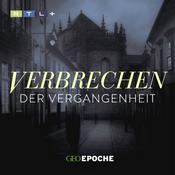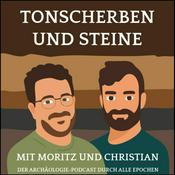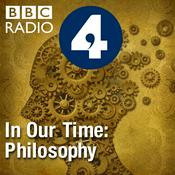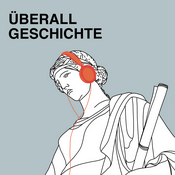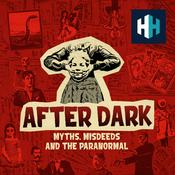1426 Episoden
Marc Mierowsky, "A Spy Amongst Us: Daniel Defoe's Secret Service and the Plot to End Scottish Independence" (Yale UP, 2026)
10.2.2026 | 57 Min.In 1706, Edinburgh was on the brink of a popular uprising. Men and women took to the streets to protest the planned union with England, fearing the end of Scottish sovereignty. But unbeknownst to the mob, a spy was in their midst—the English writer Daniel Defoe, now bankrupt and thrice pilloried, had turned a government agent.
In A Spy Amongst Us: Daniel Defoe's Secret Service and the Plot to End Scottish Independence (Yale UP, 2026), Dr. Marc Mierowsky tells the dramatic story of Defoe and his fellow spies as they sabotaged the Scottish independence movement from the inside. Together they disseminated propaganda and built a network of operatives from London to the upper Highlands, providing the English government with up-to-the-minute intelligence and monitoring its adversaries’ every move.
Through the lives of Defoe and his ring, their handlers, and opponents, Mierowsky guides us through this shadowy underworld of espionage and propaganda—revealing a disturbing and distinctly modern political campaign.
This interview was conducted by Dr. Miranda Melcher whose book focuses on post-conflict military integration, understanding treaty negotiation and implementation in civil war contexts, with qualitative analysis of the Angolan and Mozambican civil wars. You can find Miranda’s interviews on New Books with Miranda Melcher, wherever you get your podcasts.
Learn more about your ad choices. Visit megaphone.fm/adchoicesIan Smith, "Black Shakespeare: Reading and Misreading Race" (Cambridge UP, 2022)
08.2.2026 | 1 Std. 10 Min.In Black Shakespeare: Reading and Misreading Race (Cambridge University Press, 2022), Ian Smith urges readers of Othello, The Merchant of Venice, and Hamlet to develop “racial literacy.” Through both wide social influences and specific professional pressures, Shakespearean critics have been taught to ignore, suppress, and explain away the racial thinking of the plays, a set of evasion strategies that inevitably have political and social ramifications in the contemporary United States. As Ian writes in the introduction, Black Shakespeare is intended to “shift the focus to conditions that shape readers, inform their epistemologies, and influence their reading practices” (3).
Today’s guest is Ian Smith, Professor of English at the University of Southern California. Ian is the author of the previous monograph, Race and Rhetoric in the Renaissance: Barbarian Errors (Palgrave, 2009), as well as one of the most important articles in early modern literary criticism of the last twenty years, “Othello’s Black Handkerchief.” Ian is the current President of the Shakespeare Association of America.
John Yargo is a Visiting Assistant Professor of Environmental Humanities at Boston College. He holds a Ph.D. in English from the University of Massachusetts Amherst. His specializations are early modern literature, the environmental humanities, and critical race studies. His dissertation explores early modern representations of environmental catastrophe, including William Shakespeare's The Tempest, Aphra Behn's Oroonoko, and John Milton's Paradise Lost. He has published in Early Theatre, Studies in Philology, The Journal for Early Modern Cultural Studies, and Shakespeare Studies.
Learn more about your ad choices. Visit megaphone.fm/adchoicesAndrew Billing, "Animal Rhetoric and Natural Science in Eighteenth-century Liberal Political Writing" (Routledge, 2023)
04.2.2026 | 56 Min.Animal Rhetoric and Natural Science in Eighteenth-century Liberal Political Writing: Political Zoologies of the French Enlightenment (Routledge, 2024) shows how our tendency to read French Enlightenment political writing from a narrow disciplinary perspective has obscured the hybrid character of political philosophy, rhetoric, and natural science in the period. As Michèle Duchet and others have shown, French Enlightenment thinkers developed a philosophical anthropology to support new political norms and models. This book explores how five important eighteenth-century French political authors—Rousseau, Diderot, La Mettrie, Quesnay, and Rétif de La Bretonne—also constructed a "political zoology" in their philosophical and literary writings informed by animal references drawn from Enlightenment natural history, science, and physiology. Drawing on theoretical work by Derrida, Latour, de Fontenay, and others, it shows how these five authors signed on to the old rhetorical tradition of animal comparisons in political philosophy, which they renewed via the findings and speculations of contemporary science. Engaging with recent scholarship on Enlightenment political thought, it also explores the links between their political zoologies and their family resemblance as "liberal" political thinkers.
Learn more about your ad choices. Visit megaphone.fm/adchoicesArnoud S. Q. Visser, "On Pedantry: A Cultural History of the Know-it-All" (Princeton UP, 2025)
02.2.2026 | 34 Min.A lively and entertaining cultural history of a supremely annoying intellectual vice Intellectuals have long provoked scorn and irritation, even downright aggression. Many learned individuals have cast such hostility as a badge of honor, a sign of envy, or a form of resistance to inconvenient truths. On Pedantry: A Cultural History of the Know-it-All (Princeton University Press, 2025) offers an altogether different perspective, revealing how the excessive use of learning has been a vice in Western culture since the days of Socrates. Taking readers from the academies of ancient Greece to today’s culture wars, Arnoud Visser explains why pretentious and punctilious learning has always annoyed us, painting vibrant portraits of some of the most intensely irritating intellectuals ever known, from devious sophists and bossy savantes to hypercritical theologians, dry-as-dust antiquarians, and know-it-all professors. He shows how criticisms of pedantry have typically been more about conduct than ideas, and he demonstrates how pedantry served as a weapon in the perennial struggle over ideas, social status, political authority, and belief. Shifting attention away from the self-proclaimed virtues of the learned to their less-than-flattering vice, Visser makes a bold and provocative contribution to the history of Western thought. Drawing on a wealth of sources ranging from satire and comedy to essays, sermons, and film, On Pedantry sheds critical light on why anti-intellectual views have gained renewed prominence today and serves as essential reading in an age of rising populism across the globe.
Arnoud S. Q. Visser is professor of textual culture in the Renaissance at Utrecht University and director of the Huizinga Institute, the Dutch national research school for cultural history.
Caleb Zakarin is CEO and Publisher of the New Books Network.
Learn more about your ad choices. Visit megaphone.fm/adchoicesDebra Kaplan and Elisheva Carlebach, "A Woman Is Responsible for Everything: Jewish Women in Early Modern Europe" (Princeton UP, 2025)
29.1.2026 | 1 Std.In small villages, bustling cities, and crowded ghettos across early modern Europe, Jewish women were increasingly active participants in the daily life of their communities, managing homes and professions, leading institutions and sororities, and crafting objects and texts of exquisite beauty. In their book, A Woman Is Responsible for Everything: Jewish Women in Early Modern Europe (Princeton UP, 2025), Debra Kaplan and Elisheva Carlebach marshal a dazzling array of previously untapped archival sources to tell the stories of these woman for the first time.Kaplan and Carlebach focus their lens on the kehillah, a lively and thriving form of communal life that sustained European Jews for three centuries. They paint vibrant portraits of Jewish women of all walks of life, from those who wielded their wealth and influence in and out of their communities to the poorest maidservants and vagrants, from single and married women to the widowed and divorced. We follow them into their homes and learn about the possessions they valued and used, the books they read, and the writings they composed. Speaking to us in their own voices, these women reveal tremendous economic initiative in the rural marketplace and the princely court, and they express their profound spirituality in the home as well as the synagogue.Beautifully illustrated, A Woman Is Responsible for Everything lifts the veil of silence that has obscured the lives of these women for too long, contributing a new chapter to the history of Jewish women and a new understanding of the Jewish past.
Interviewees: Debra Kaplan is the Samuel Braun Chair for the History of the Jews in Germany at Bar-Ilan University. Elisheva Carlebach is Salo Wittmayer Baron Professor of Jewish History, Culture, and Society, at Columbia University.
Host: Schneur Zalman Newfield is an Associate Professor of Sociology and Jewish Studies at Hunter College, City University of New York, and the author of Degrees of Separation: Identity Formation While Leaving Ultra-Orthodox Judaism (Temple University Press). Visit him online at ZalmanNewfield.com.
Learn more about your ad choices. Visit megaphone.fm/adchoices
Weitere Geschichte Podcasts
Trending Geschichte Podcasts
Über New Books in Early Modern History
This podcast is a channel on the New Books Network. The New Books Network is an academic audio library dedicated to public education. In each episode you will hear scholars discuss their recently published research with another expert in their field.
Discover our 150+ channels and browse our 28,000+ episodes on our website: newbooksnetwork.com
Subscribe to our free weekly Substack newsletter to get informative, engaging content straight to your inbox: https://newbooksnetwork.substack.com/
Follow us on Instagram and Bluesky to learn about more our latest interviews: @newbooksnetwork
Podcast-WebsiteHöre New Books in Early Modern History, Verbrechen der Vergangenheit und viele andere Podcasts aus aller Welt mit der radio.de-App
Hol dir die kostenlose radio.de App
- Sender und Podcasts favorisieren
- Streamen via Wifi oder Bluetooth
- Unterstützt Carplay & Android Auto
- viele weitere App Funktionen
Hol dir die kostenlose radio.de App
- Sender und Podcasts favorisieren
- Streamen via Wifi oder Bluetooth
- Unterstützt Carplay & Android Auto
- viele weitere App Funktionen

New Books in Early Modern History
Code scannen,
App laden,
loshören.
App laden,
loshören.

